The Ecosystem Approach
Complexity in Ecological Systems Series
The Ecosystem Approach
Complexity, Uncertainty, and Managing for Sustainability
Edited by David Waltner-Toews, James J. Kay, and Nina-Marie E. Lister
COLUMBIA UNIVERSITY PRESS

NEW YORK
Columbia University Press
Publishers Since 1893
New York Chichester, West Sussex
cup.columbia.edu
Copyright 2008 Columbia University Press
All rights reserved
E-ISBN 978-0-231-50720-2
Library of Congress Cataloging-in-Publication Data
The ecosystem approach: complexity, uncertainty, and managing for sustainability / David Waltner-Toews, James J. Kay, and Nina-Marie Lister, editors
p. cm.(Complexity in ecological systems series)
Includes bibliographical references and index.
ISBN 978-0-231-13250-3 (cloth: alk. paper) / ISBN 978-0-231-13251-0 (pbk.: alk. paper)
ISBN 978-0-231-50720-2 (ebook)
1. Ecological integrity 2. Ecosystem management I. Waltner-Toews, David, 1948 II. Kay, James J. III. Lister, Nina-Marie E. IV. Title V. Series.
QH541.15.E245E38 2008
333.72dc22
2008014964
A Columbia University Press E-book.
CUP would be pleased to hear about your reading experience with this e-book at .
Contents
A Preface
David Waltner-Toews, Nina-Marie E. Lister, and Stephen Bocking
1 An Introduction to Systems Thinking
James J. Kay
2 Framing the Situation: Developing a System Description
James J. Kay
3 Scale and Type: A Requirement for Addressing Complexity with Dynamical Quality
T. F. H. Allen
4 Self-Organizing, Holarchic, Open Systems (SOHOs)
James J. Kay and Michelle Boyle
5 So, What Changes in a Complex World?
James J. Kay
6 Bridging Science and Values: The Challenge of Biodiversity Conservation
Nina-Marie E. Lister
7 The Cultural Basis for an Ecosystem Approach: Sharing Across Systems of Knowledge
Fikret Berkes and Iain Davidson-Hunt
8 A Family of Origin for an Ecosystem Approach to Managing for Sustainability
Martin Bunch, Dan McCarthy, and David Waltner-Toews
9 Linking Hard and Soft Systems in Local Development
Reg Noble, Ricardo Ramirez, and Clive Lightfoot
10 Human Activity and the Ecosystem Approach: The Contribution of Soft Systems Methodology to Management and Rehabilitation of the Cooum River in Chennai, India
Martin Bunch
11 Landscape Perspectives on Agroecosystem Health in the Great Lakes Basin
Dominique Charron and David Waltner-Toews
12 An Agroecosystem Health Case Study in the Central Highlands of Kenya
Thomas Gitau, David Waltner-Toews, and John McDermott
13 Food, Floods, and Farming: An Ecosystem Approach to Human Health on the Peruvian Amazon Frontier
Tamsyn P. Murray, David Waltner-Toews, Jos Sanchez-Choy, and Felix Sanchez-Zavala
14 Implementing the Ecosystem Approach: The Diamond, AMESH, and Their Siblings
David Waltner-Toews and James J. Kay
15 Return to Kathmandu: A Post Hoc Application of AMESH
R. Cynthia Neudoerffer, David Waltner-Toews, and James J. Kay
16 Tools for Learning: Monitoring Design and Indicator Development
Michelle Boyle and James J. Kay
17 Beyond Complex Systems: Emergent Complexity and Social Solidarity
Silvio Funtowicz and Jerry Ravetz
18 Third World Inequity, Critical Political Economy, and the Ecosystem Approach
Ernesto F. Rez-Luna
19 An Ecosystem Approach for Sustaining Ecological IntegrityBut Which Ecological Integrity?
David Manuel-Navarrete, Dan Dolderman, and James J. Kay
20 The Water or the Wave? Toward an Ecosystem Approach for Cross-Cultural Dialogue on the Whanganui River, New Zealand
Charlotte Helen unde
A Tribute to James J. Kay
David Waltner-Toews et al.
Appendix: Hierarchy and Holonocracy
Henry Regier
The universe we live in is confusing, complex, and sometimes opaque to our queries of it. As scientists, we simplify it to try to understand it. Systems thinking is one approach to simplification that has proven useful for answering certain sets of questions. The ecosystem approach as described in this book is an attempt to bring together an ecological understanding of the world with a desire to make the world a convivial place for our species.
The distinction between social systems and ecological systems, and the linking of them into social-ecological systems, is a useful simplification for teasing apart difficult problems. Insofar as our species interacts with other species and the landscapes we live in, we are ecological beings; insofar as we consume and excrete nutrients and use energy, we are members of ecosystems. An urban landscape is certainly a social system. It is also as much an ecosystem as any rural landscape or wilderness. Just as the restructuring of landscapes by cattle, elephants, or coral do not change scientific abilities to describe those landscapes in ecosystemic terms, just so urban restructuring by people does not change the essential ecological nature of a city.
Pandemics of avian influenza and salmonellosis reflect the sad fact that the ecological nature of urban settlements is often forgotten or neglected. This neglect results in outbreaks, epidemics, and pandemics caused by infectious agents that take advantage of various feedback loops in the ecosystems we inhabit. For instance, there is evidence that the pandemic of human disease with Salmonella enteritidis in the 1980s and 1990s was attributable to eradication of the poultry pathogen Salmonella pullorum (the cause of fowl plague) from commercial chickens (Rabsch et al. 2000).
This pandemic (like that of avian influenza) can be understood as a function of social systems, ecological systems, linked social-ecological systems, and fully integrated socioecological or ecosocial systems. Each of these systemic constructions is useful for answering a different set of questions.
For the poultry industry, the Salmonella pandemic can be usefully explored as a function of a social system constructed to feed urban populations. Biologists can learn a great deal about ecological roles and the global circulation and adaptation of microbial populations by looking at the pandemic as a function of an ecological system. Linking the social and ecological systems yields useful insights into policy alternatives that might satisfy several conflicting criteria related to keeping down consumer prices and preventing foodborne diseases. Finally, by considering the interactions between different species of mammals, birds, and bacteria, using different criteria (organism, animal, flock; individual, population) at different scales (microscopic, bioregional, global), one can begin to ask questions related to the sustainability of different efforts to promote global human health and nutrition.

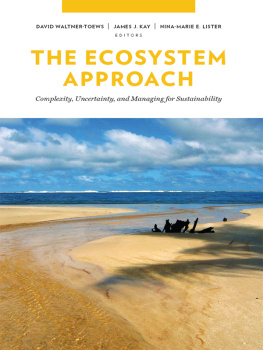

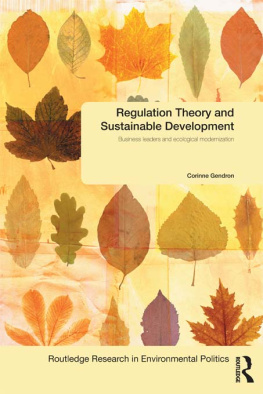
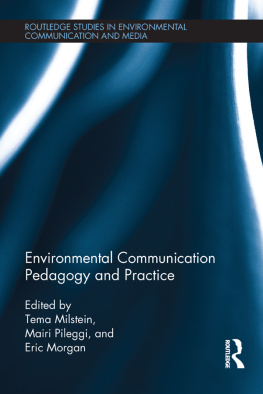
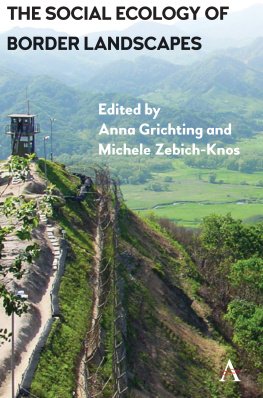
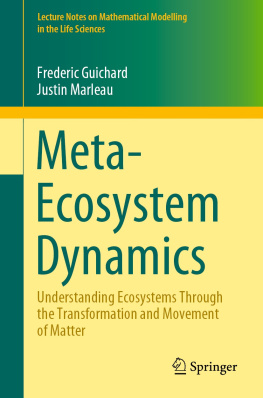
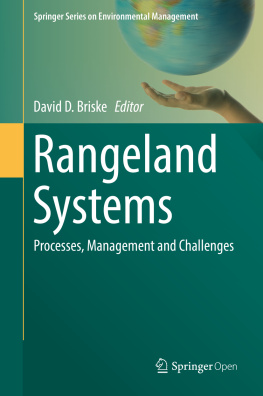
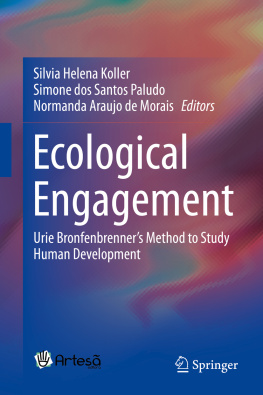

 NEW YORK
NEW YORK